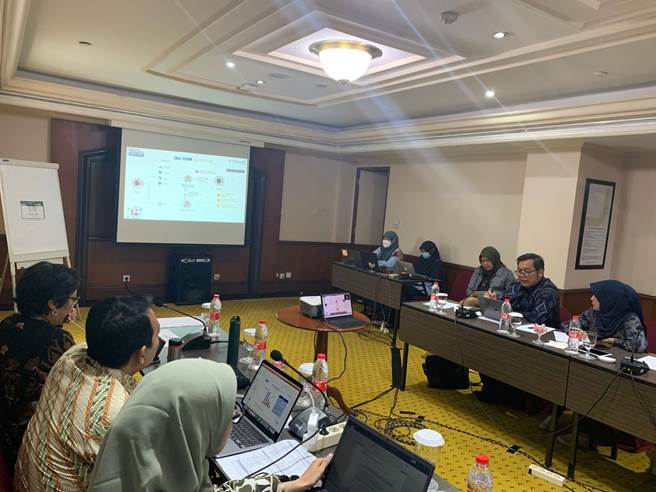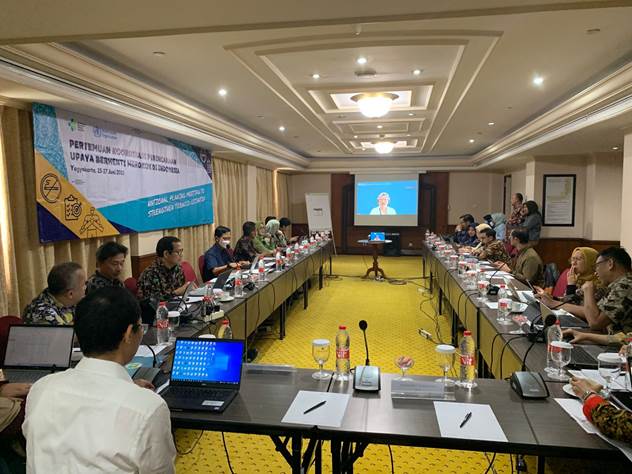Breaking free from tobacco addiction is a common desire among smokers, with 63% of Indonesia’s 70.2 million tobacco users planned to or were thinking about quitting smoking, as revealed by the 2021 Indonesia Global Adults Tobacco Survey (GATS). Despite this strong motivation, existing tobacco cessation services in the country fall short in effectively supporting these individuals. These services typically offer a range of resources and interventions to assist people in overcoming nicotine addiction and adopting healthier lifestyles, increasing the chances of successful quitting and long-term tobacco abstinence. However, the same report revealed that only 38.9% of smokers who visited healthcare facilities received advice on quitting, highlighting a crucial gap that needs urgent attention.
In response to this challenges, MoH collaborated with WHO Indonesia to host the National Planning Meeting on Tobacco Cessation from 25 to 27 June 2023. The primary goals were to raise awareness about the importance of comprehensive tobacco cessation services, identify challenges, and develop key recommendations for a national action plan to enhance these services across Indonesia. The meeting brought together 45 representatives from various line ministries and public bodies, including MoH, the Ministry of Education, Ministry of Religious Affairs, Food and Drugs Administration (Badan POM), the Healthcare and Social Security Agency for Health (BPJS Kesehatan), as well as civil society organizations and academia.

The Tobacco Control Unit, Directorate of NCD Prevention and Control, MoH, shared their experience in the implementation of national guidelines and a chatbot for tobacco cessation. Credit: MoH /Meutia Rachma
Participants reached consensus on three key recommendations for future action. Firstly, they advocated for integrating brief advice on tobacco cessation into all facets and levels of health service delivery, as a response to the GATS results indicating that only 38.9% of smokers visiting healthcare providers received advice to quit smoking. Secondly, they proposed leveraging digital technology by enhancing the mobile cessation app so that more people can access tobacco cessation assistance. Lastly, they recommended pharmacological interventions to bolster the success rate of tobacco cessation efforts.

Remarks by Dr Lubna Bhatti, Team Lead Non-Communicable Diseases and Healthier Population Unit, WHO Indonesia. Credit: MoH /Meutia Rachma
Written by Ridhwan Fauzi, National Professional Officer for Tobacco Free Initiative, WHO Indonesia.
